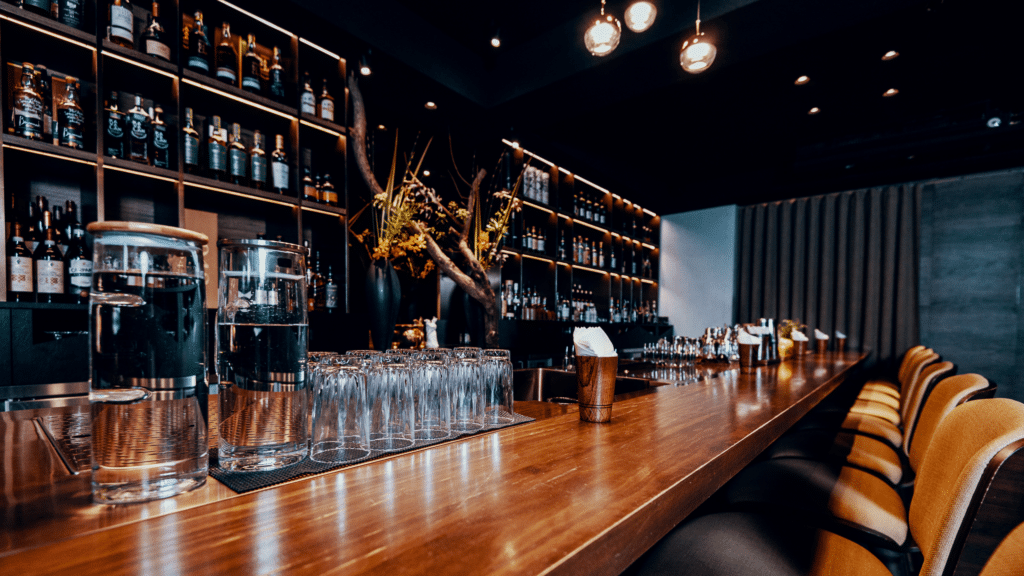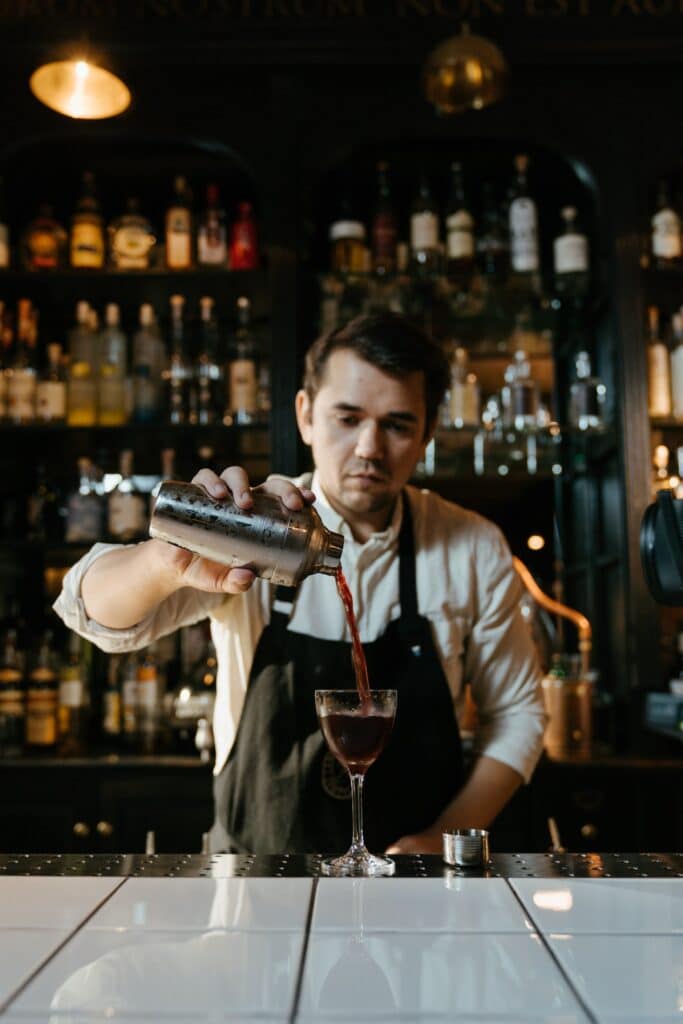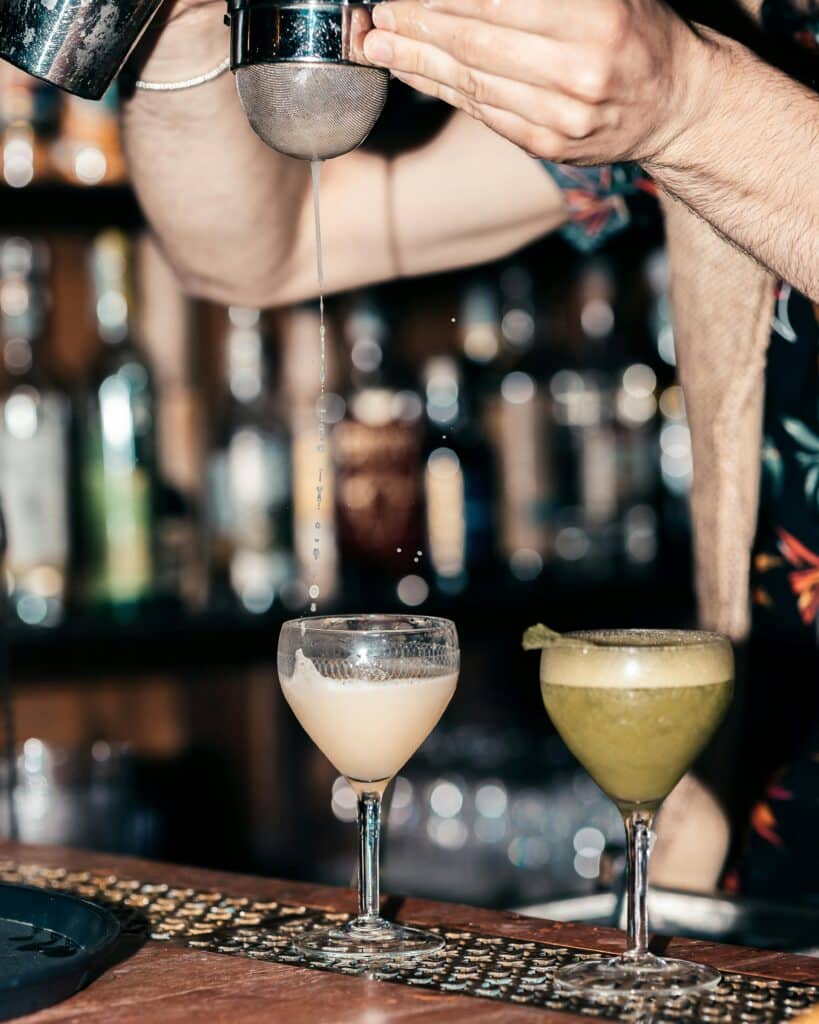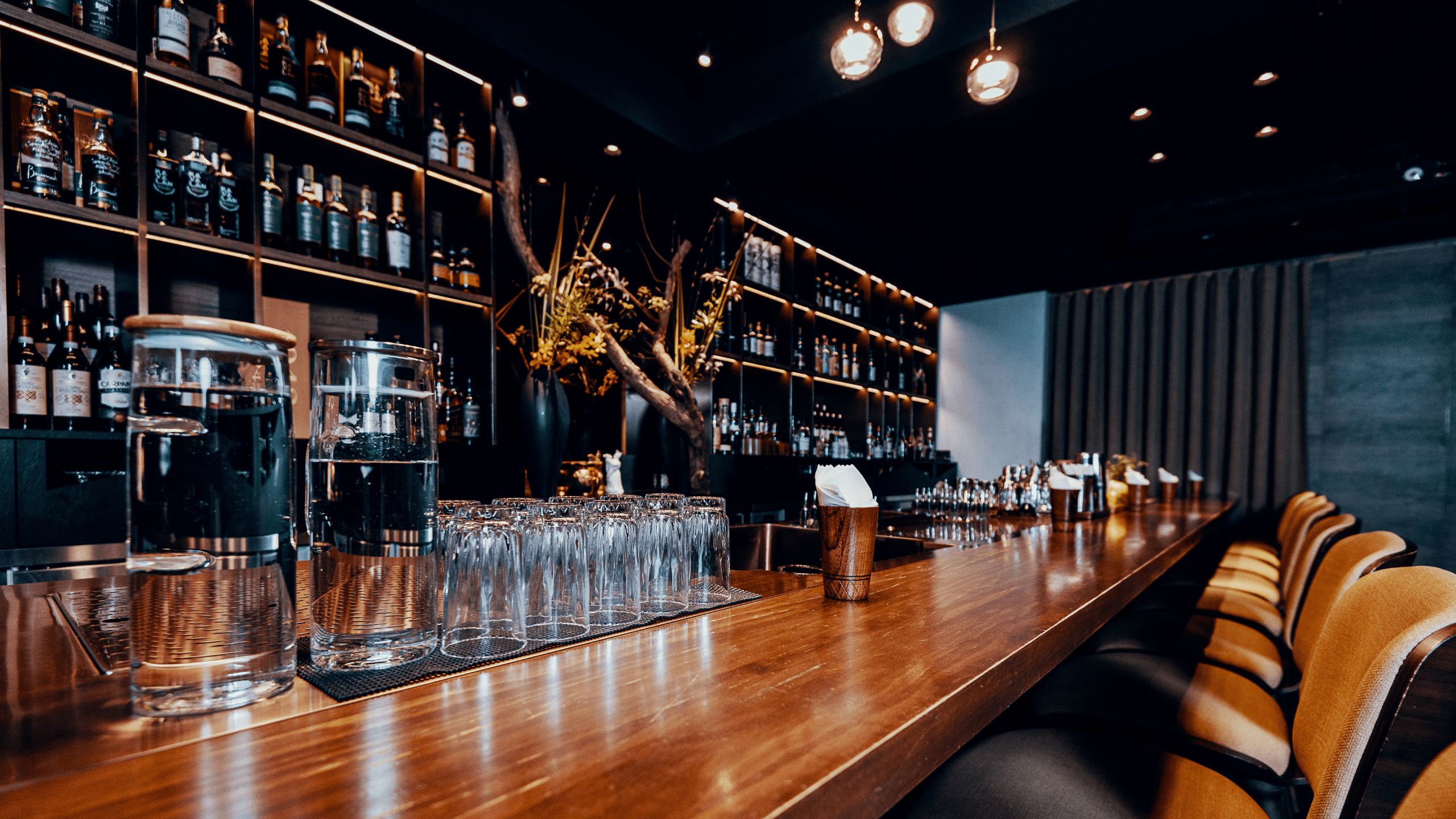This article was updated December 1st, 2023.
Busy? Click to listen to this blog post.

A great bartender or bar manager is born with a natural affinity for connecting with people and flair. Often easy-going, they have an instinct to understand others’ needs. This is a key aspect of being a great bartender. Secondly, they will need training in customer service skills and creating drinks and alcoholic beverages. These soft skills are important but there are important rules and regulations for bar staff.
The inherent qualities along with fine-tuned bartending etiquette and skills will attract and sustain a loyal customer base. There are basic bartender rules every bartender should be trained to understand in the hospitality industry. Every training session should include a review of the basic rules and regulations. Remember that these rules are not always taught when getting your bartender license in bartending school. When onboarding a new bartender, note that when a rule poses an issue for the bartender, you may not have the best person for the job.
13 Bartender and Server Rules to Have an Exceptional Bar
- Do what you can to make guests happy, within your given limits behind the bar.
- It’s not your party, booze, nightclub, or your bar. Treat it as such.
- The bar is a stage, maintaining professionalism as a mixologist.
- Don’t become too intimate with guests, this is important in the service industry.
- Make sure you know what the bar serves and why.
- Practice, practice, practice to stay current on trends. Great drinks are made by knowing the details of mixology.
- Learn how to handle cash and be comfortable with cash.
- Bartending is continuous, so don’t sweat the bad tips and be prepared for tip sharing.
- You’ve got to dress and act the part.
- Learn how to manage the environment to appeal to guests, such as, when to lower the air conditioning or change the music.
- A big part of bartending is bantering with guests. Have a couple of jokes ready to entice, and say “hello” and “goodbye” to everyone. Guests appreciate this level of service.
- Always maintain stock and a clean and orderly bar.
- The importance of cleanliness is key. Keep personal hygiene tip-top clean. Do not touch your face, hair, or other parts of your body, and always be seen washing your hands.
Understanding and practicing these bar management tips are critical to becoming a good bartender and are just as important as the basic drinks to know as a bartender. But if you want a staff of top-notch bartenders, you need to go deeper into how you train your staff.
Keep Service Quick for a Successful Bar Business
A slow bartender is a surefire way to lose customers fast for two obvious reasons: customers don’t like waiting too long to place an order or receive their cocktail. Customers who experience slow service once might come back, but the second time will be the last. Bars with quick, friendly service are sought after and will always win over the competitors.
Streamline Operations with These Bar Management Tips
To avoid this catastrophe, train your bar staff to:
- Prepare their bar area, mise en place (everything in its place). Bar tools should always be returned to the same place. Over time, this will become a habit, then tools are easily found, and drinks can be prepared quickly. This will also help with inventory management and keep your bar clean and organized.
- Practice until perfect and keep learning. Preparing drinks can also become muscle memory and practice creates efficiency. Encourage your bar staff to practice making drinks in their off-time or when the bar is slow to learn a new modern cocktail. Not only will they have the necessary knowledge to make a great drink, but they will build their muscle memory. When there is a surge of drink orders, the bar team can execute orders flawlessly and habitually, without disturbing guests’ experience.
- Bartenders need to always be alert and pay attention to customers with mixed drinks nearly gone.
- Make sure your bar uses a bar POS system and management software that offers features to streamline bar operations and speed up order entries and payment processing. Use touchscreen features that take orders and submit reorders in just a few clicks, and program multiple menus that automatically switch between happy hour deals and other promotional pricing for drinks. A bar can be challenging, the right tools and system can be helpful with managing staff, table management, and the extra tasks you’re dealing with.
From one minute to the next, a bar can go from calm to buzzing. This can be because a large group just walked in or it’s the end of the business day and several people show up to your bar around the same time. By staying alert, servers and bartenders can react in time to changing customer demands. Train bartenders to emphasize the importance of their customers and to be ready to perform in a busy, peak hour.
Be Friendly and Add Hospitality and Cheer…Talk to Guests
The difference between treating people like guests and customers is subtle, yet distinct: customers come and go, but guests are long-lasting and become regulars. As your bar grows its reputation for having consistent, fast service, new customers will come to see how great you are. Over time, regular guests will become noticeable, and it’s important to remember their names and their go-to drink in order to provide excellent customer service to keep everyone coming back.

Some bartenders spend most of their time cleaning; glasses are always sparkling, and bottle labels are facing forward. While this is the ideal setting, a clean bar alone doesn’t bring in sales. Instead of defaulting to keeping a tidy bar, train your bar staff to focus on customers first. Consider hiring a barback that’s going to help you manage the cleaning and be useful behind the bar.
Bartenders juggle roles to guests, from servant to fantasy character to sympathetic listener. Encourage bar staff to chat with guests and make connections, while maintaining a professional distance. Bartenders should never pry into the personal lives of guests, yet they should be ready to listen. A big aspect of bartending is listening. Through listening, regular and loyal customers become guests.
It is bar etiquette for bartenders that providing unsolicited advice at your bar, even when asked for, should not occur. Often, guests are seeking sympathy and a good listener, not a solution to their problems. To maintain long-lasting regular guests, avoid offending them or becoming too intimate by giving advice.

Training Bar Staff to Create the Best Bar Cheer
Remember that when there is little personal connection with customers, the experience is mostly transactional—the customer pays for a service offered by the bartender. The guest, on the other hand, comes to enjoy a full bar experience, which the bartender supplies for the guest’s comfort. There are two key points to providing a full experience:

- Creating a warm and inviting environment. If you have ever watched Cheers, then “Hey, Norm!” could occur at your bar. Staff should be friendly and interact with a caring attitude. This part of your training requires your bar staff to be instinctively tuned into their surroundings. This will go a long way with how customers feel in your bar or restaurant. Bartenders should always be conscious of how inviting and comfortable the bar is and be prepared to adjust to improve the space.
- Doing whatever it takes to make customers happy. Additionally, they should be able to recognize the mood of a customer and his or her unique needs. One top restaurant owner even enforces his staff to improve the moods of guests by any means necessary. TO have everyone on the same page, go over how many free drinks can be given or when it’s acceptable to comp a drink or snack. With the boundaries in place, your staff can go above and beyond to give bar customers the best service.
Developing a team of world-class bartenders and having everything running smoothly takes time, patience, and positive work. The bar industry can be tough, continue providing feedback and be sure to reward your staff for jobs well done with days off or fun bartending competitions. With the right team in place, you’ll be able to have the best bar staff and be hosting the most buzzing happy hour in town!
FAQs About Training Bar Staff
Is any special equipment required for training bartenders?
Not at all. Exceptional bartenders are developed through knowledge, practice, and passion. While specialized tools can be helpful, they are not mandatory. The focus should be on the fundamentals: recipe knowledge, customer service, and technique. Incorporating interactive training exercises and simulations can further enhance their skills and confidence behind the bar.
How long does it take to train an exceptional bartender?
There is no fixed timeline as it varies from person to person. However, continuous training is essential for exceptional service. Even experienced bartenders can learn new skills, drinks, or ways to improve the customer experience. The duration of training depends on factors such as prior experience, learning aptitude, and the desired depth of knowledge. It is important to provide ongoing support and opportunities for growth, ensuring that bartenders have the chance to refine their craft and stay updated with industry trends. By fostering a culture of learning and development, you can nurture exceptional bartenders who excel in their craft and provide excellent service to your customers.



